Britain’s departure from the EU has ‘unblocked’ Europe from acting in certain policy areas, the bloc’s ambassador to the UK has said.
João Vale de Almeida, Europe’s first representative to Britain after Brexit, said the UK leaving had also increased support for the union overall.
He argued that while Brexit was a “lose-lose” situation, there was also a “bright side” whereby Britain’s previous vetoing of important EU policies was no longer taking place.
Download the new Independent Premium app
Sharing the full story, not just the headlines
The spectacle of the difficult departure has also served as a warning tale for EU citizens to “realise that nothing should be taken for granted”, he said.
While inside the union, the UK had a reputation for blocking integration and being a difficult partner.
Separately, polls have suggested a general increase in support for EU membership across most member states throughout the course of negotiations – the opposite of the “domino effect” predicted by some Brexiteers.
“I keep saying and believing that Brexit was a lose-lose situation. This being said, we always have to try and look on the bright side of things and the bright side in terms of Brexit on the 27 is two things,” Mr Vale de Almeida told a seminar hosted by the Chatham House think-tank.
“First, is that a number countries and citizens in the union realise that nothing should be taken for granted and you see that in the opinion polls – the support for the EU went up instead of down after Brexit. That’s a sign of people being aware how attached they are to the idea of being together. That’s one positive effect of Brexit in a way in political terms.”
He continued: “The other is that it has unblocked some policy areas where there was some restraint on the side of Britain and that has liberated some impulses and some dynamism within the Euroepan Union.
“I take foreign policy and security, in terms of the defence side of it, what we can do together. There’s been a remarkable development in the last few years in the EU’s capability to act in this domain.
The latest news on Brexit, politics and beyond direct to your inbox
“The other one is of course everything that has to do with the budgetary dimension … all in all I remain of the opinion that it was not good for everybody, but there are bright sides of it and we are trying, I guess, to maximise the new possibilities of action inside the union once the UK is out.”
While Britain’s reputation for blocking EU initiatives was largely justified, since it left other countries have stepped forward to raise objections on certain issues.
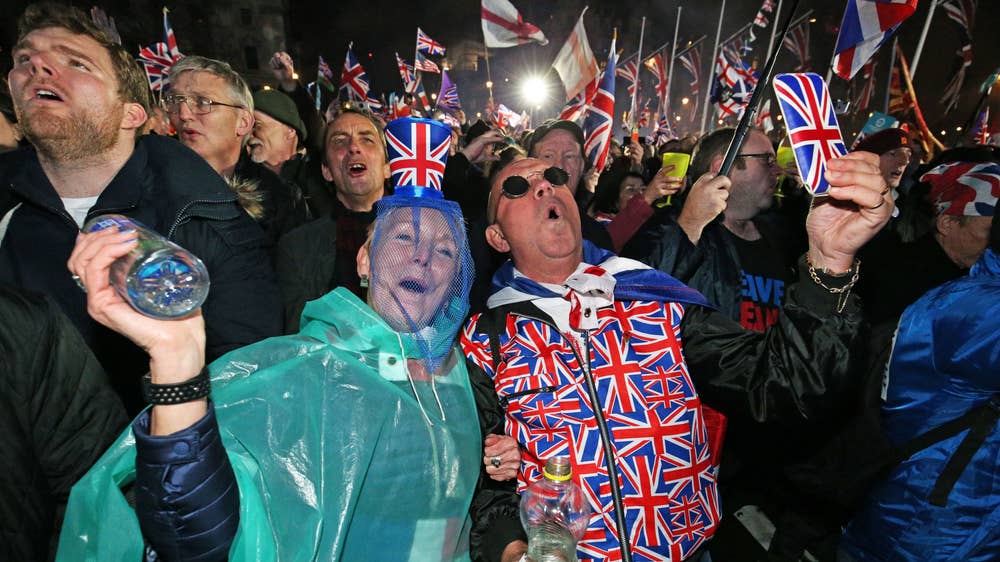

1/37
Pro-Brexit supporters celebrating in Parliament Square, after the UK left the European Union on 31 January. Ending 47 years of membership
PA
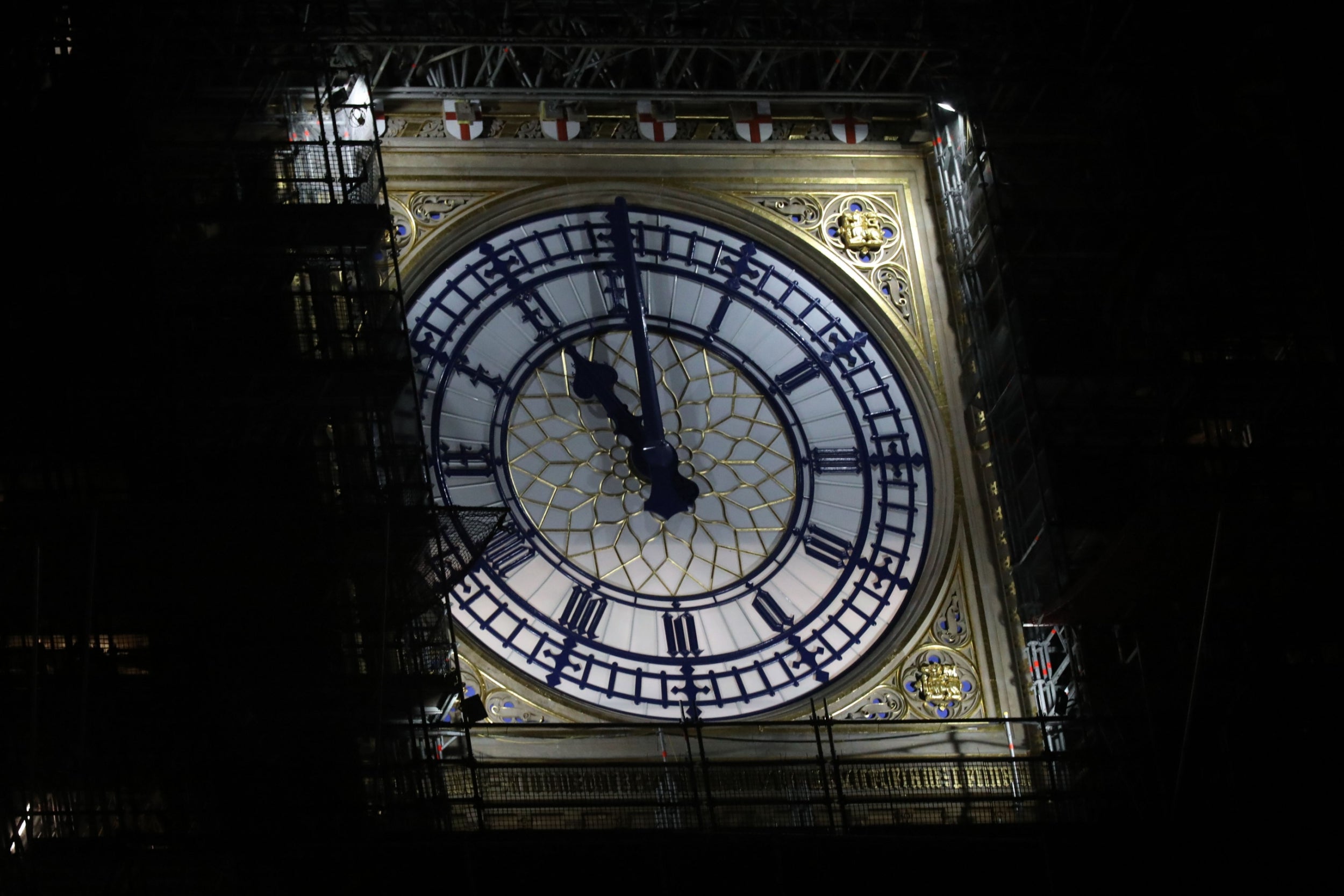
2/37
Big Ben, shows the hands at eleven o’clock at night
AFP via Getty
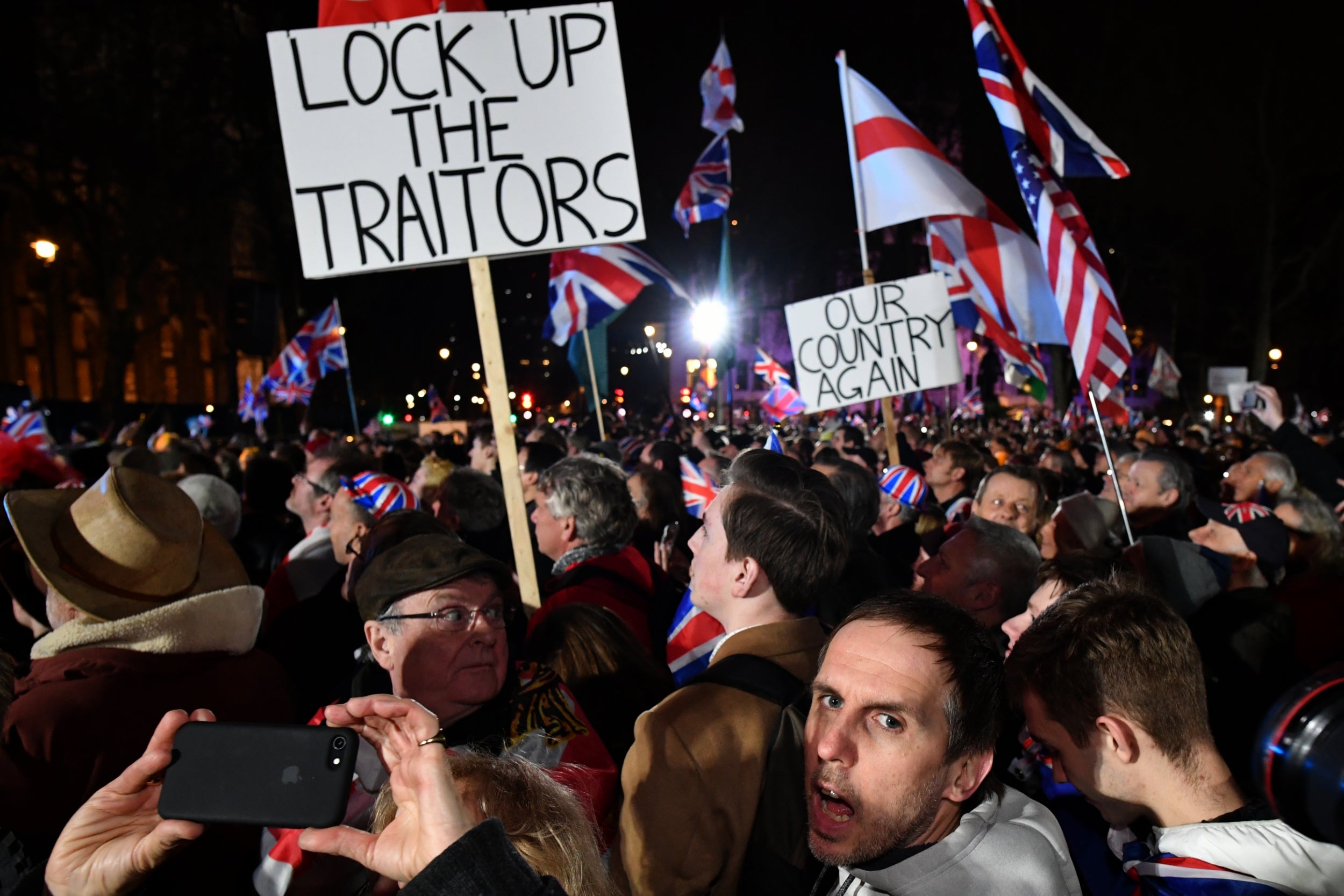
3/37
Pro Brexit supporters attend the Brexit Day Celebration Party hosted by Leave Means Leave
Getty
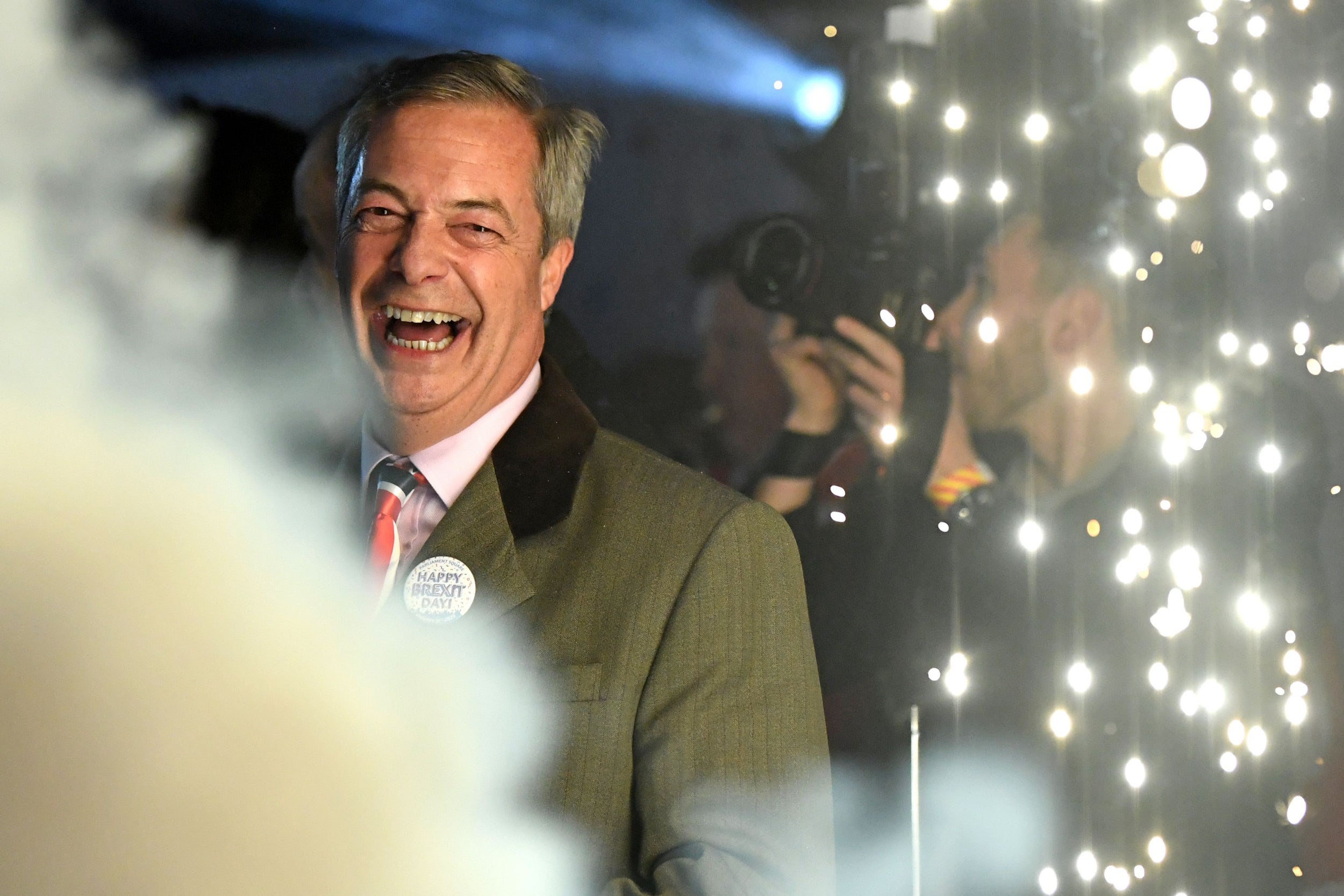
4/37
Brexit Party leader Nigel Farage smiles on stage
AFP/Getty
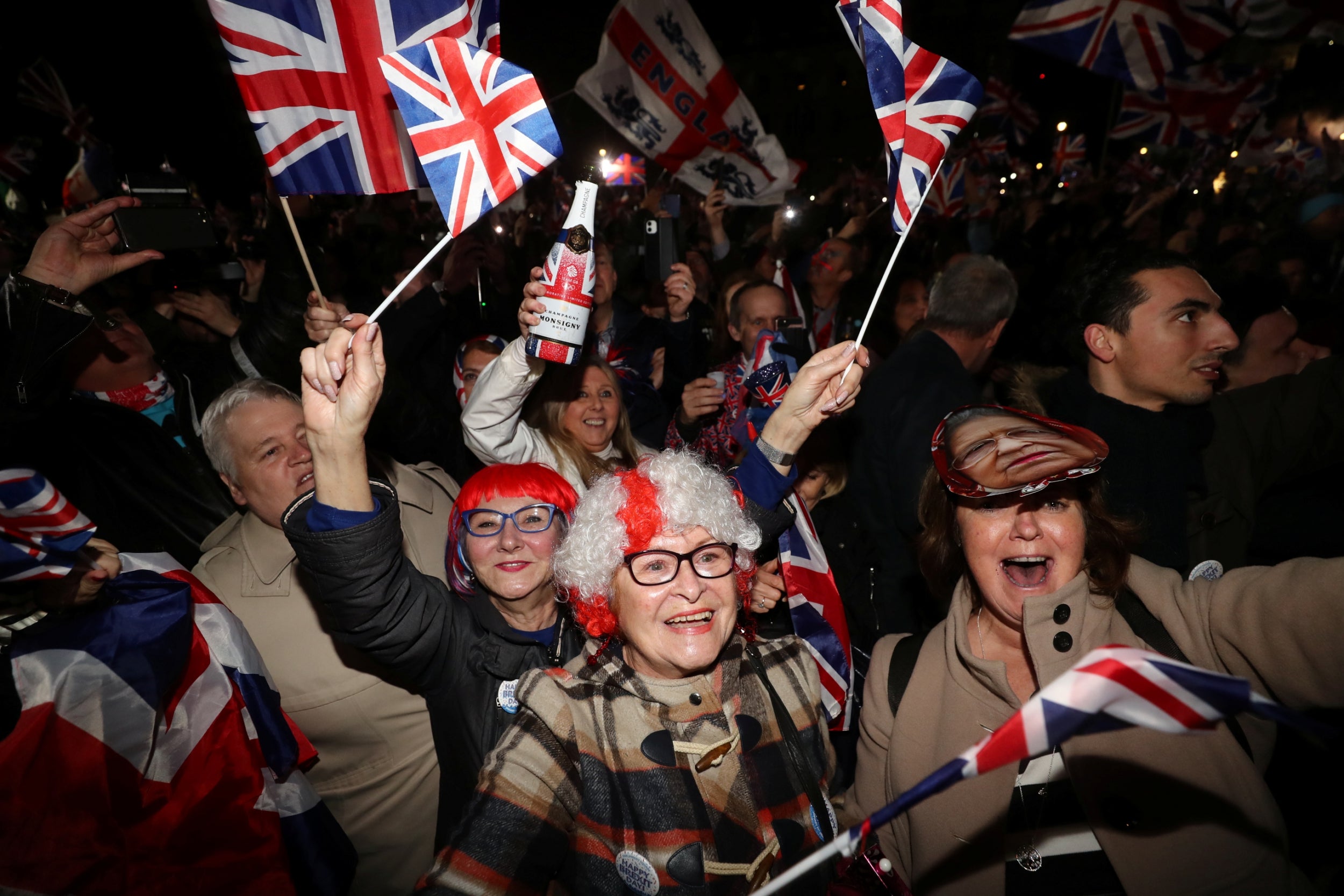
5/37
People celebrate in Parliament Square
Reuters
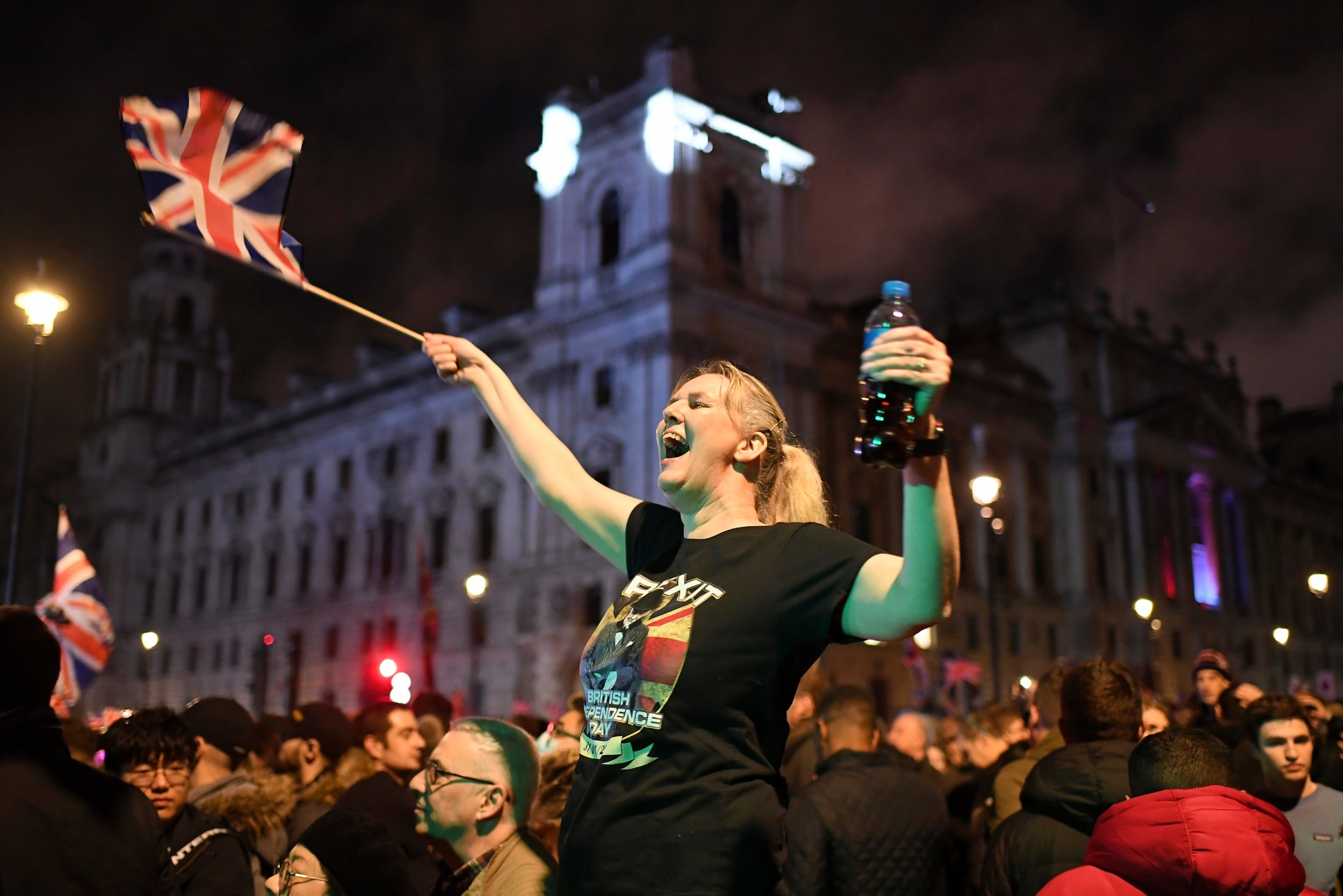
6/37
A Brexit supporter celebrates during a rally in Parliament square
AP

7/37
Police form a line at Parliament Square to prevent a small group of anti-Brexit protestors from going through to the main Brexit rally
PA

8/37
Nigel Farage speaks to pro-Brexit supporters
PA
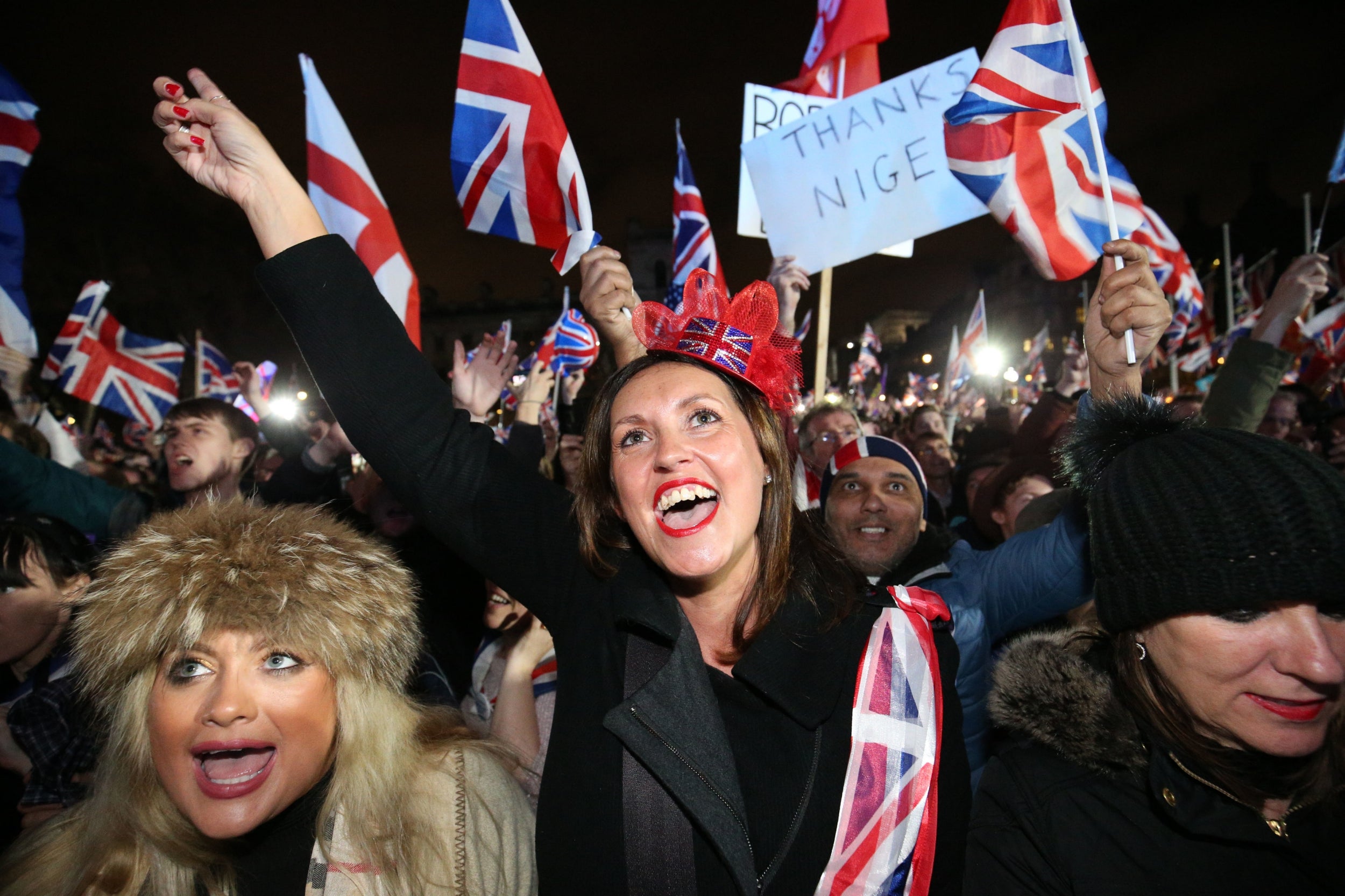
9/37
PA
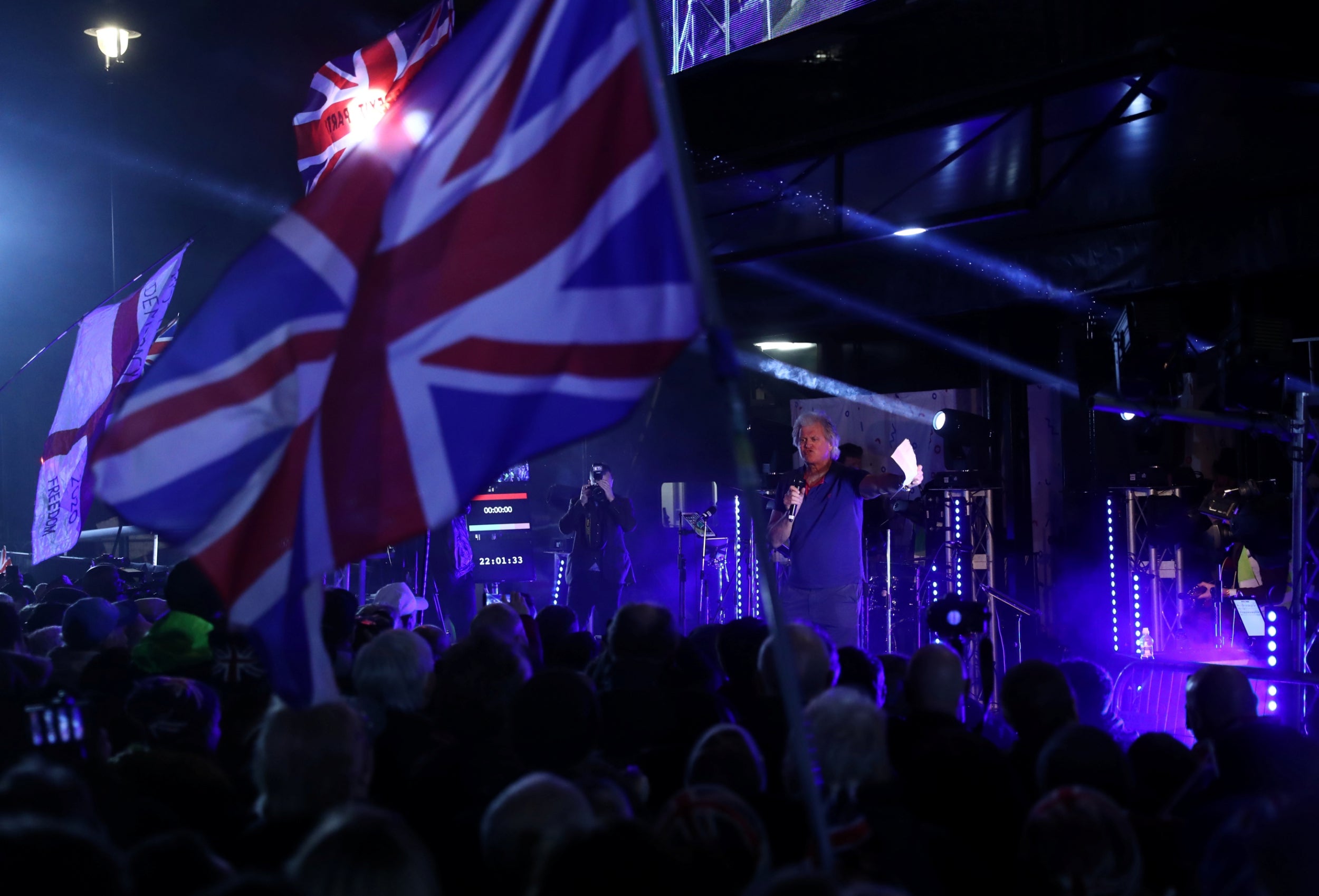
10/37
JD Wetherspoon Chairman Tim Martin speaks as people wave flags
Reuters

11/37
Getty
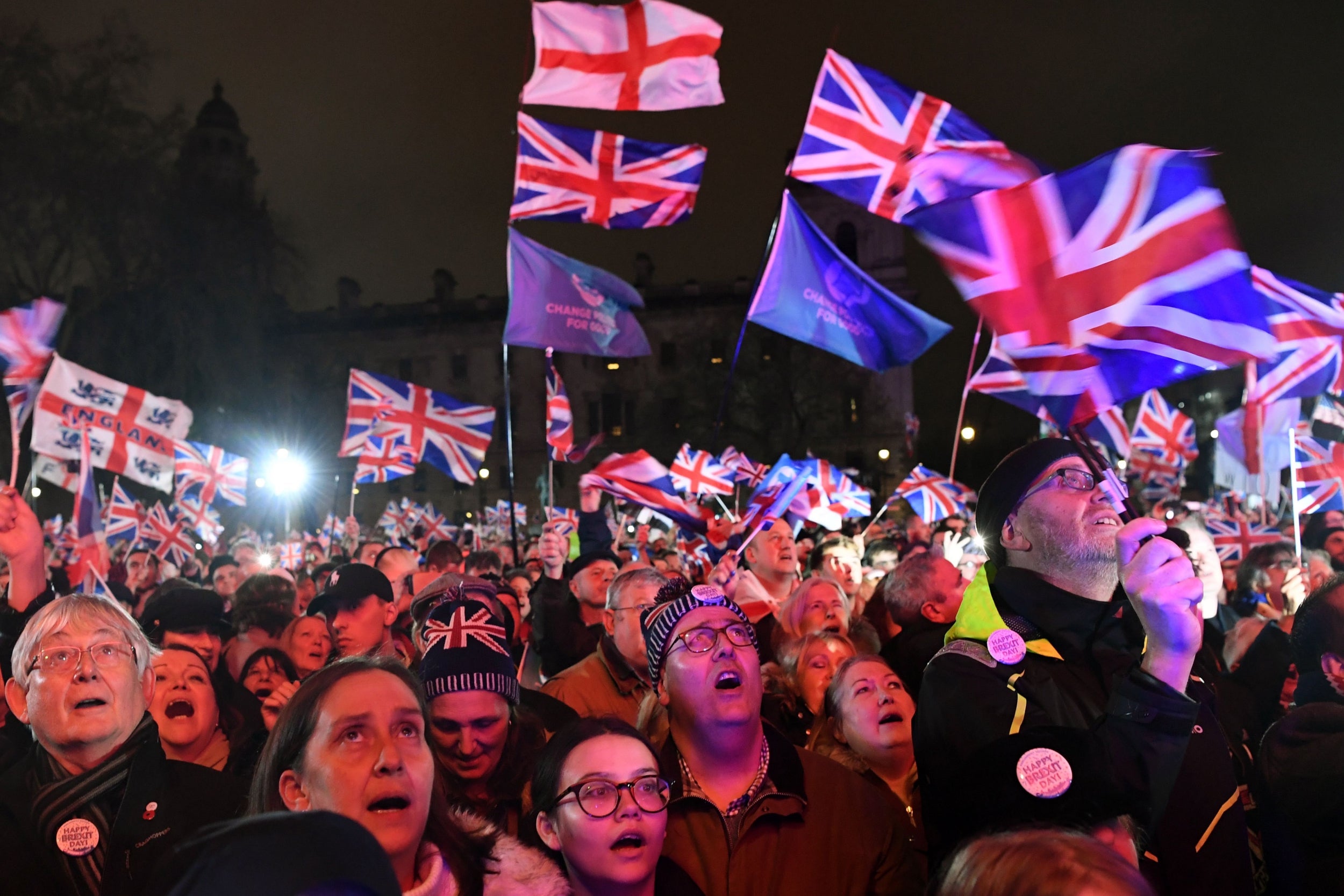
12/37
Brexit supporters wave Union flags as they watch the big screen
AFP via Getty
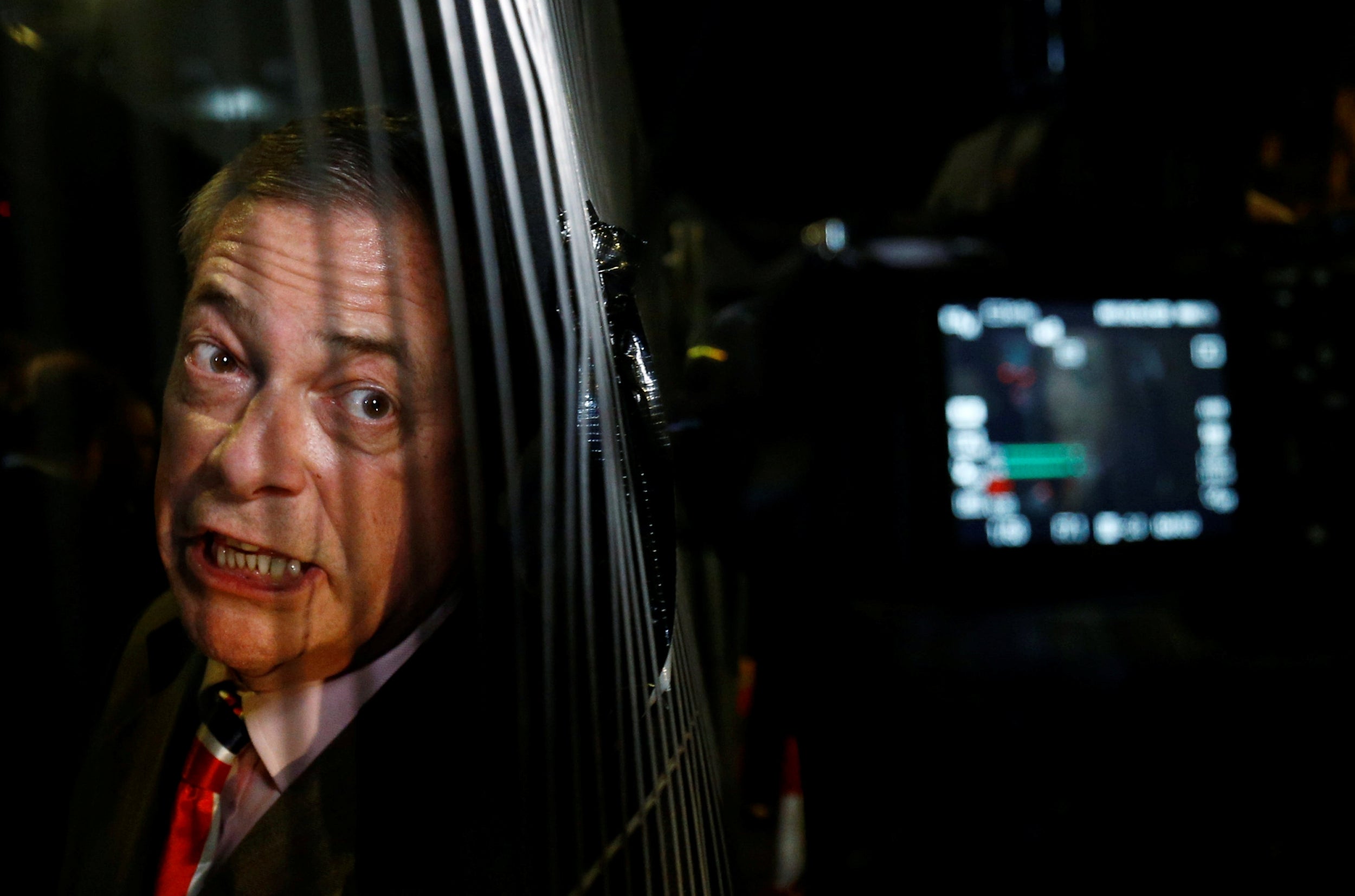
13/37
Brexit Party leader, Nigel Farage arrives
Reuters

14/37
Brexit supporters gather
AP

15/37
Ann Widdecombe speaks to pro-Brexit supporters
PA
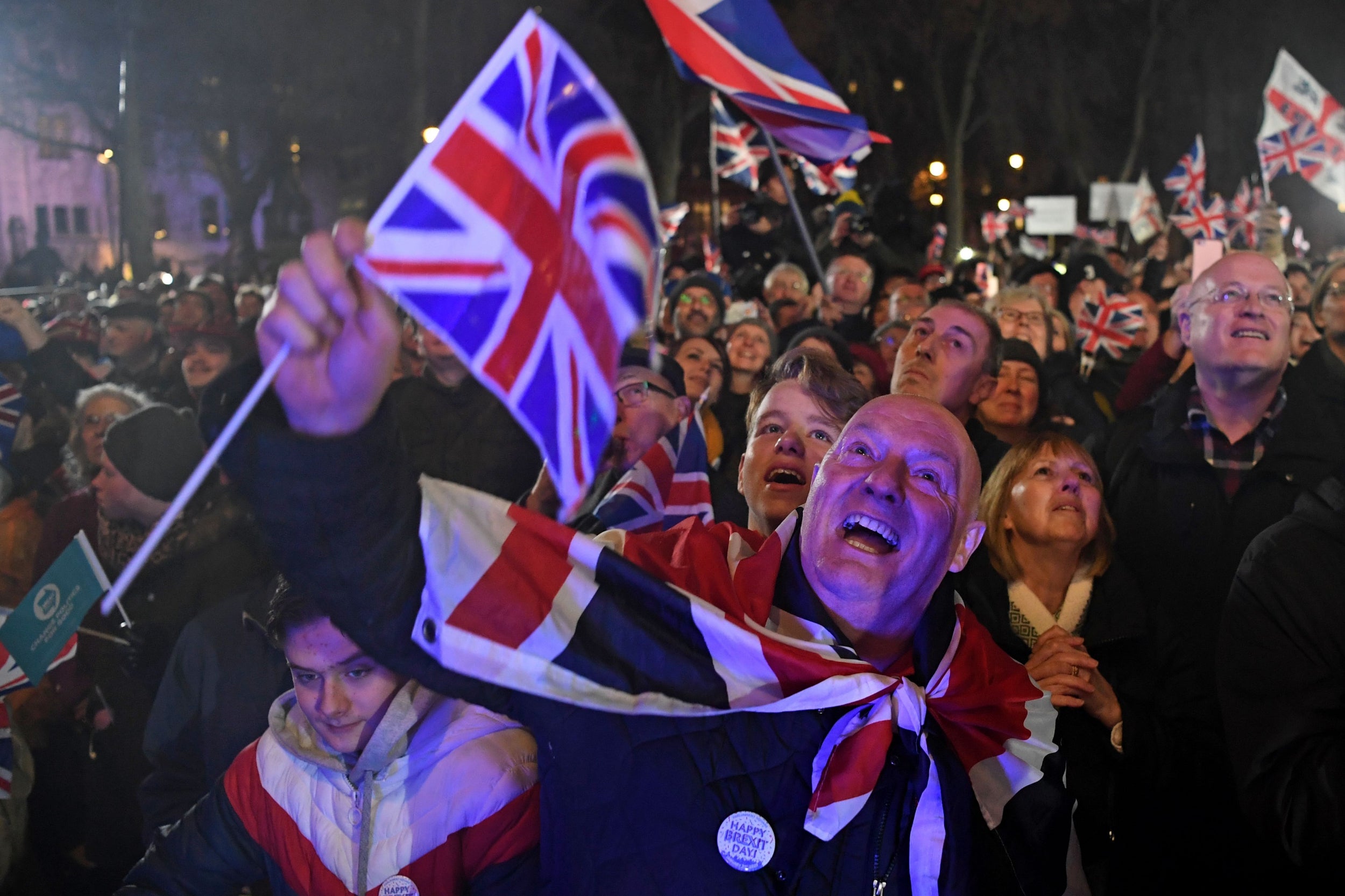
16/37
Brexit supporters wave Union flags as they watch the big screen
AFP via Getty
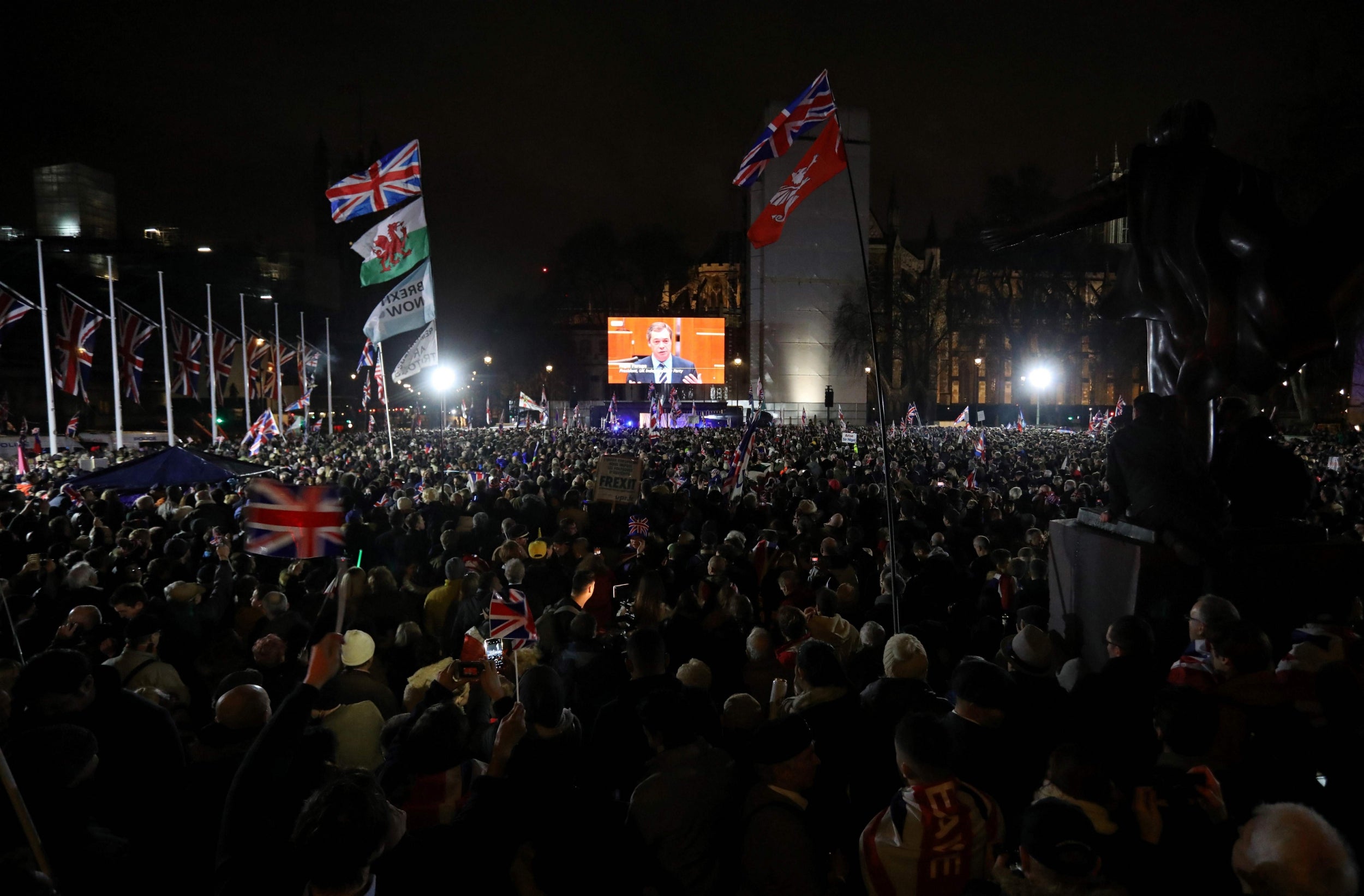
17/37
AFP via Getty

18/37
People wave British Union Jack flags as they celebrate
Reuters
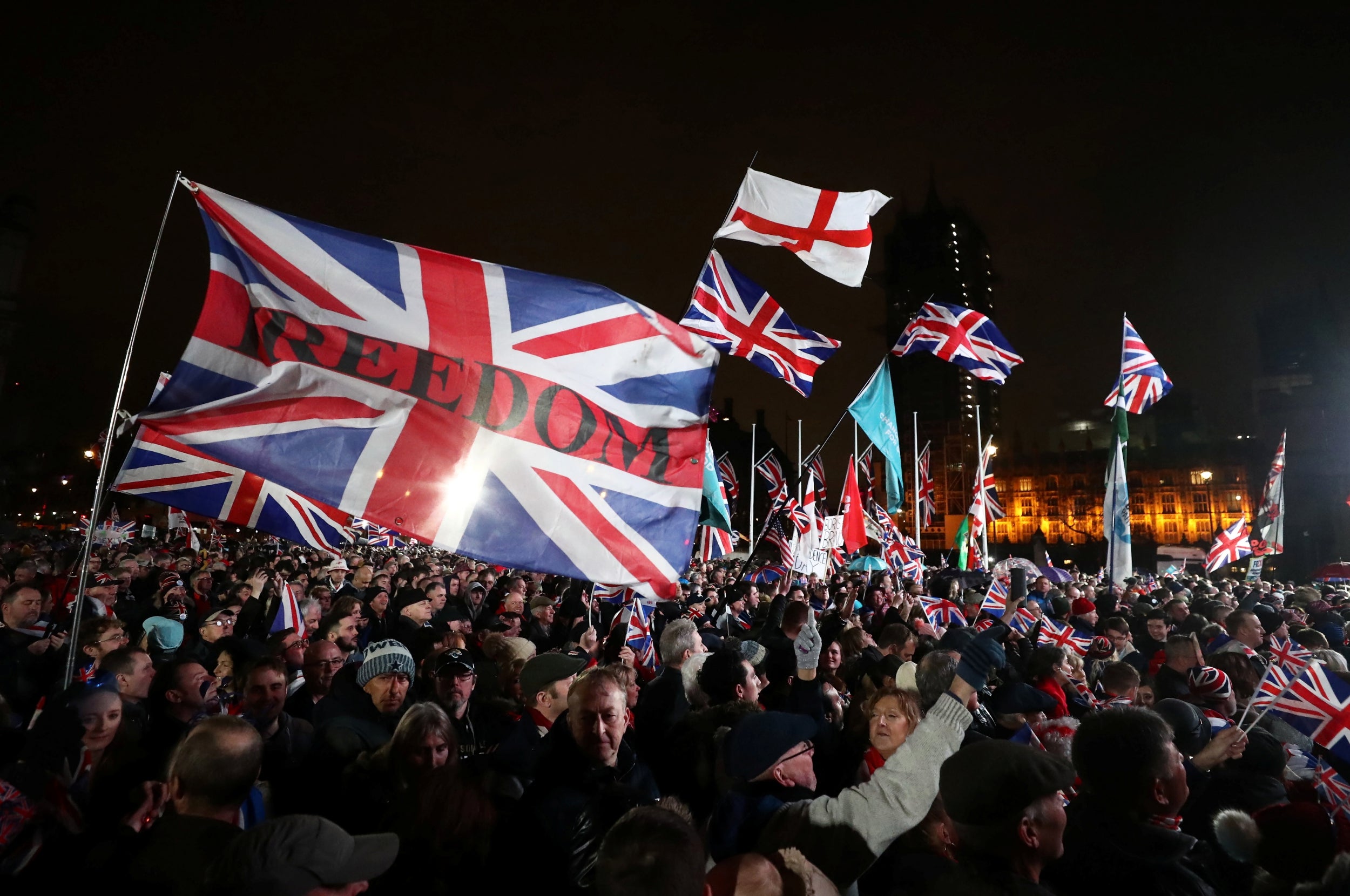
19/37
Pro-Brexit demonstrators celebrate on Parliament Square on Brexit day
Reuters

20/37
A pro-Brexit supporter jumps on an EU flag
PA
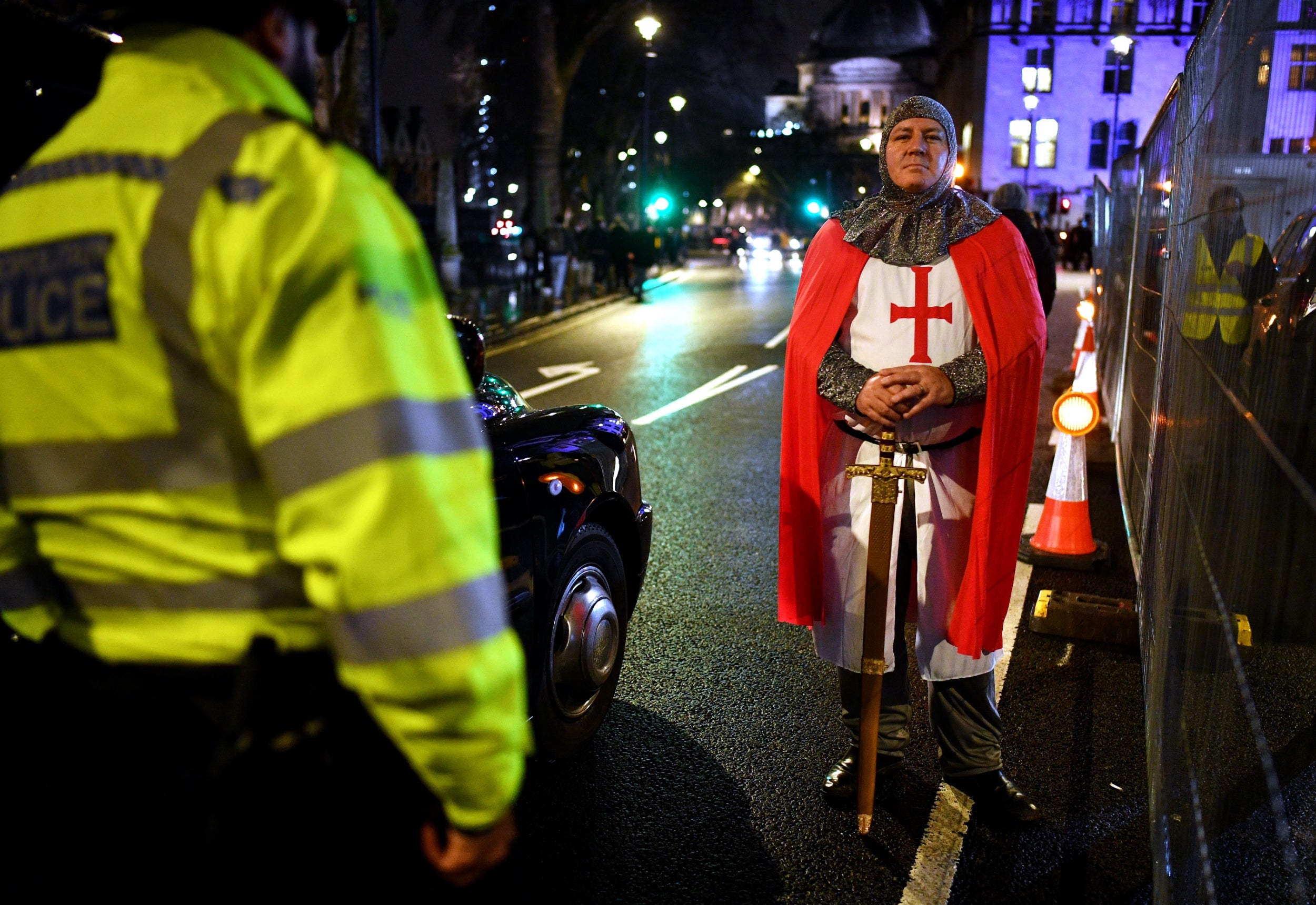
21/37
Getty

22/37
AFP via Getty
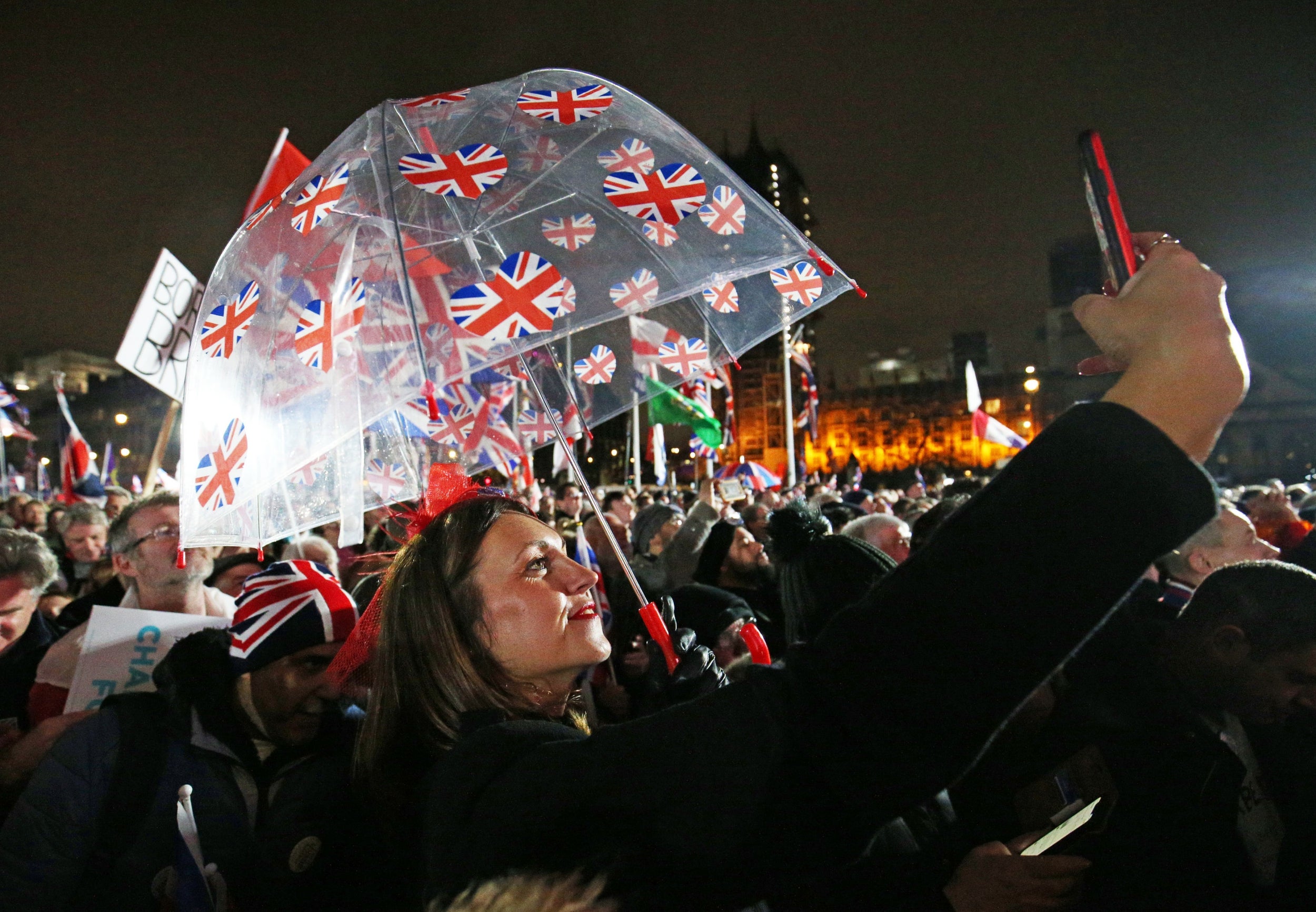
23/37
PA
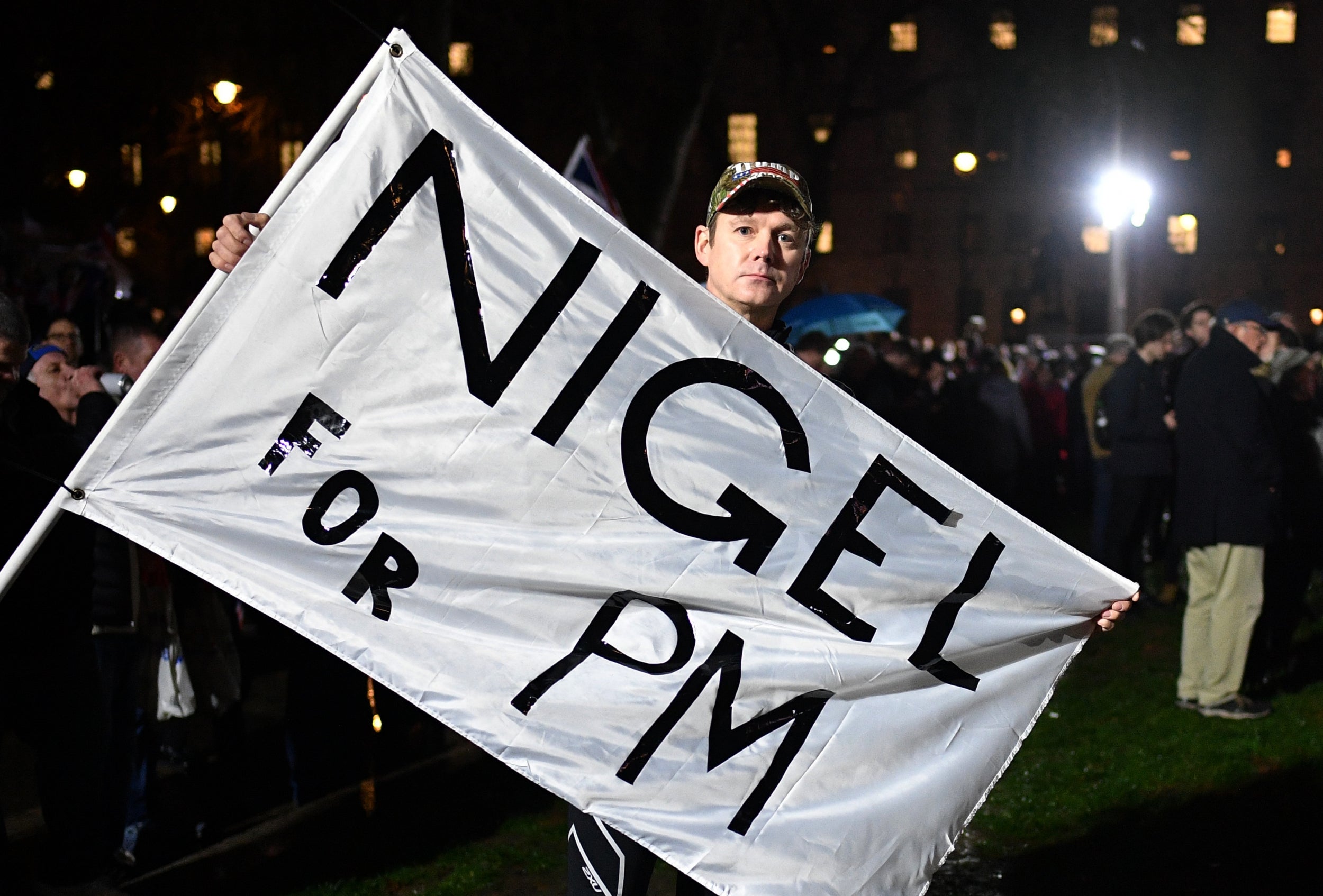
24/37
Getty
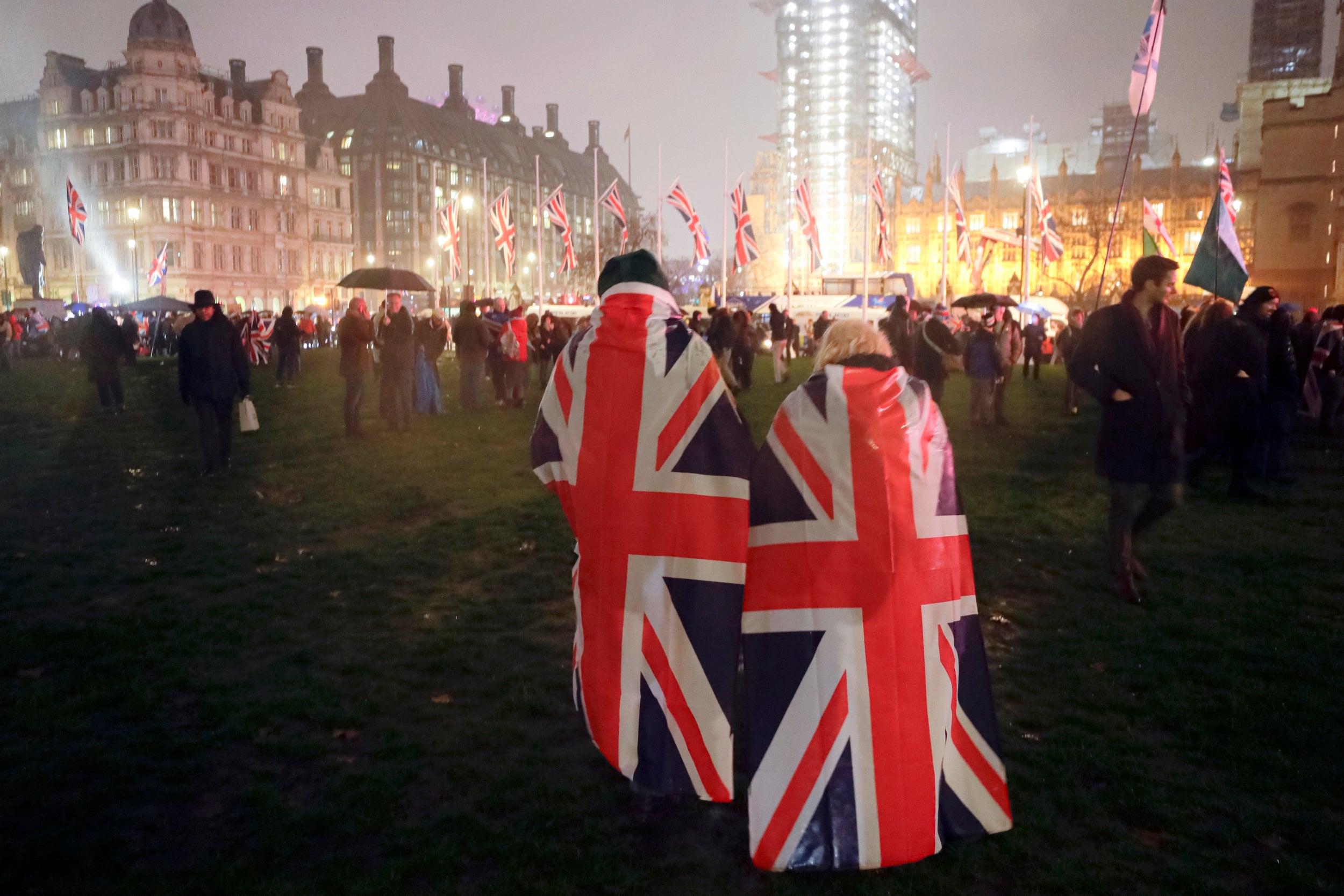
25/37
AP
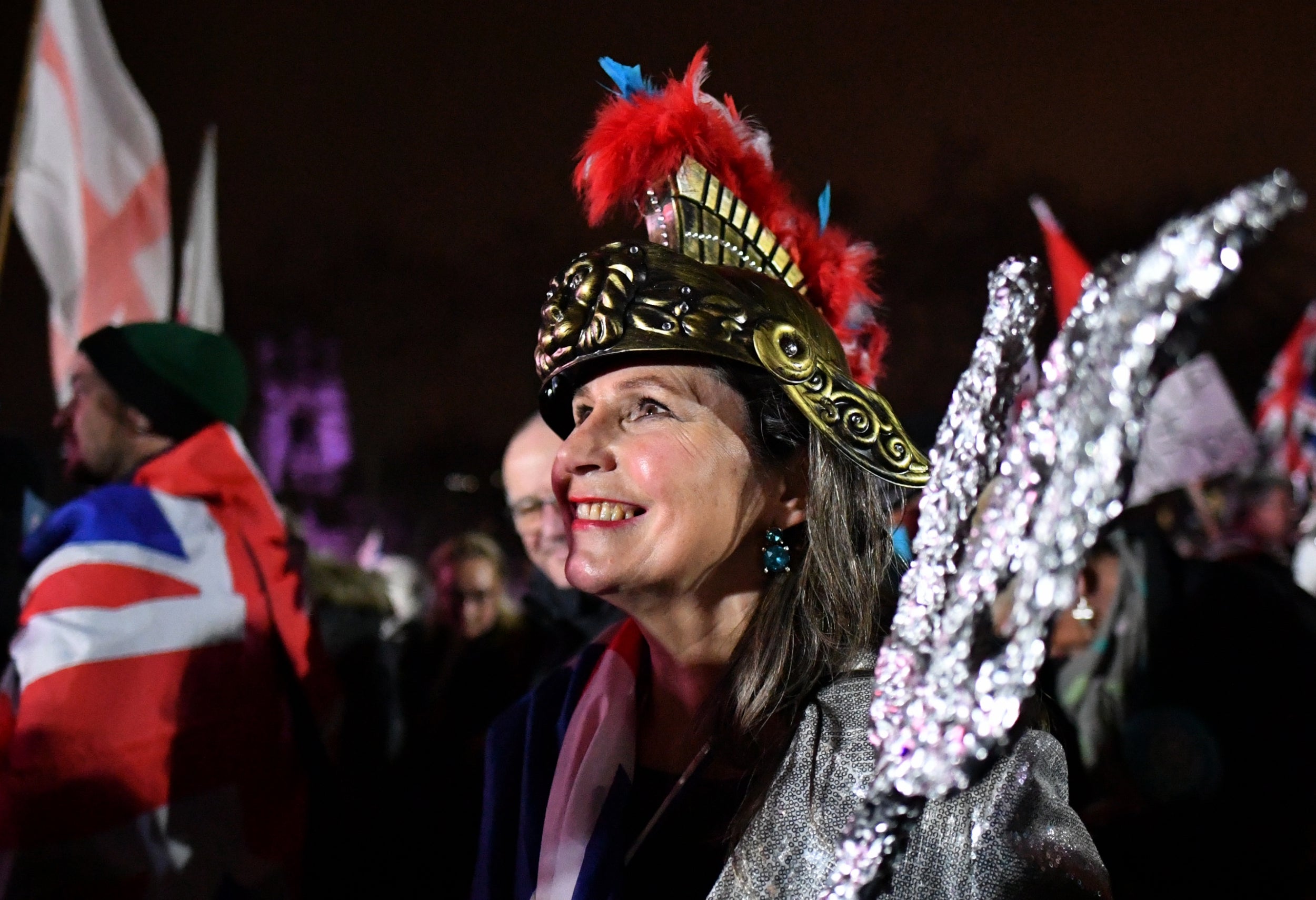
26/37
Getty
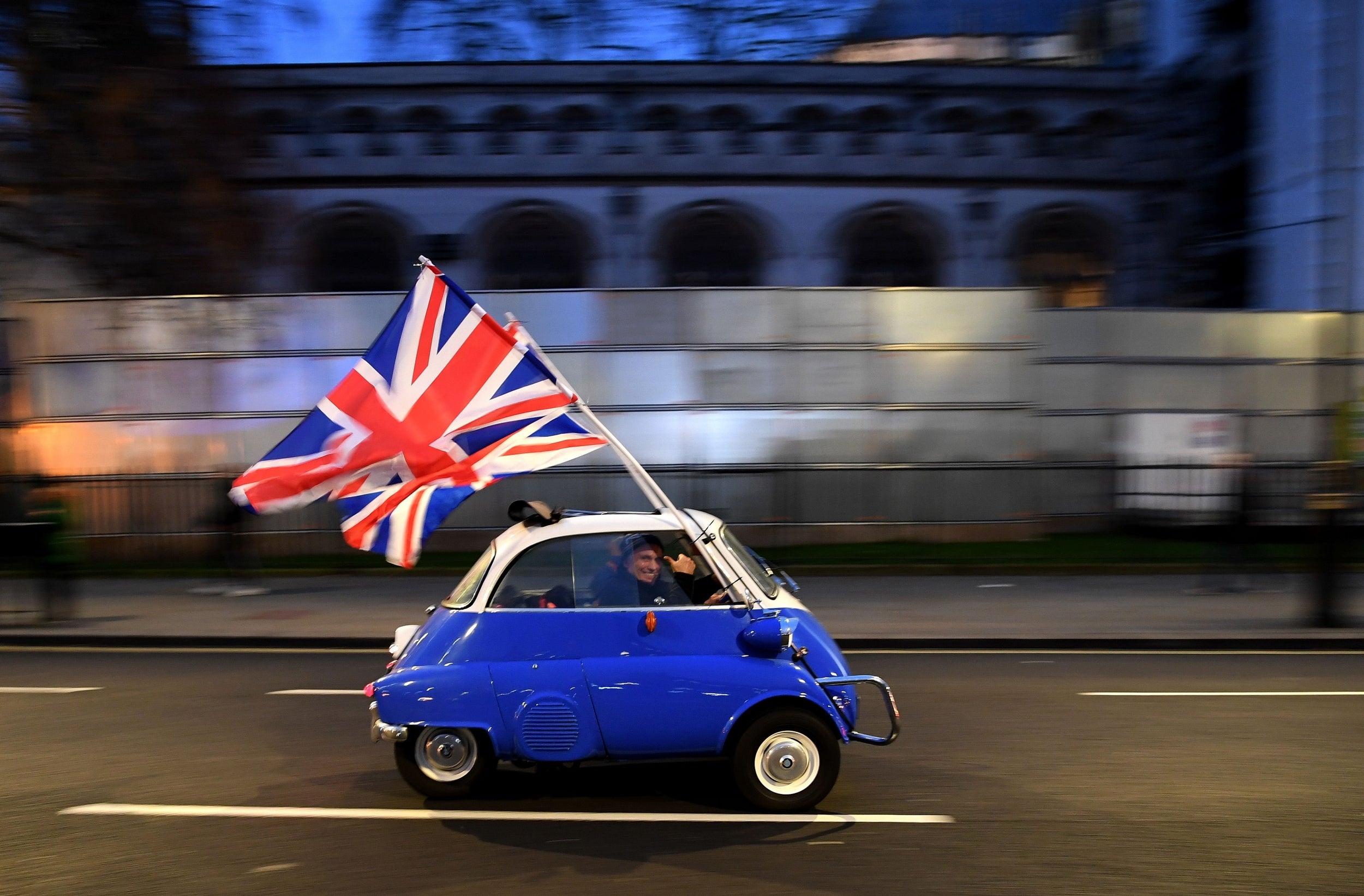
27/37
A man waves Union flags from a small car as he drives past Brexit supporters gathering
AFP via Getty

28/37
A pro-Brexit supporter pours beer onto an EU flag
PA

29/37
Getty
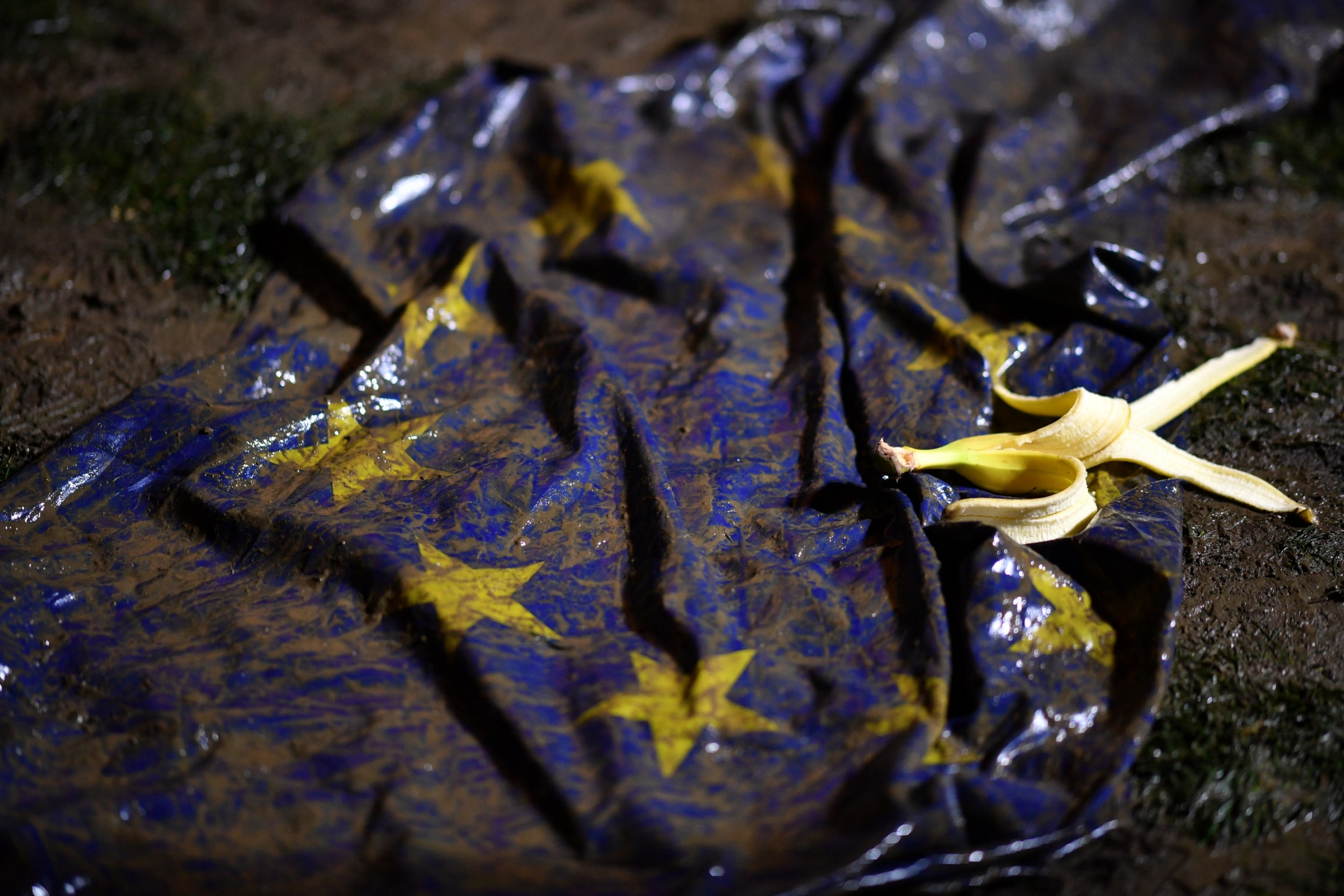
30/37
An EU flag lies trampled in the mud
Getty
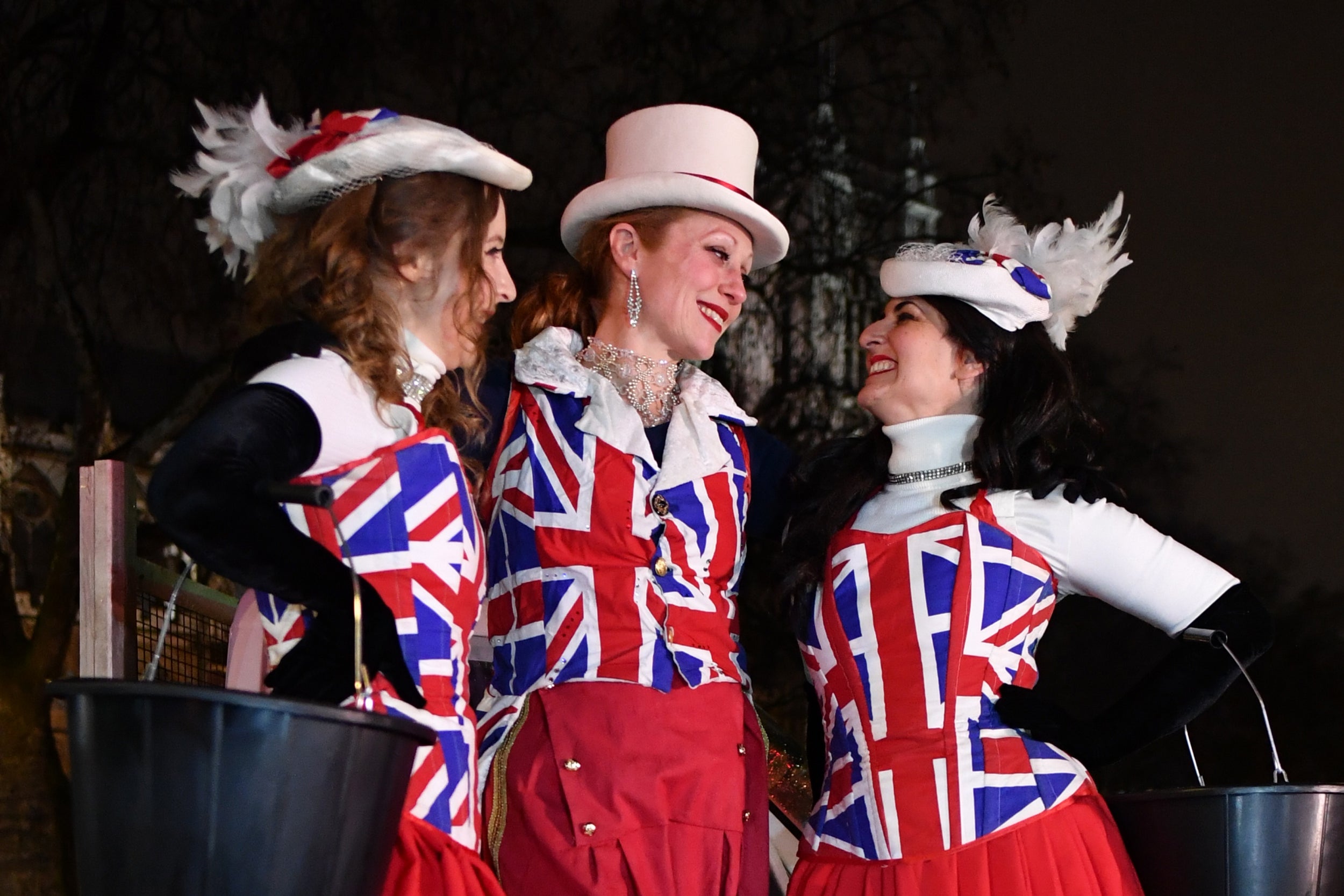
31/37
Getty
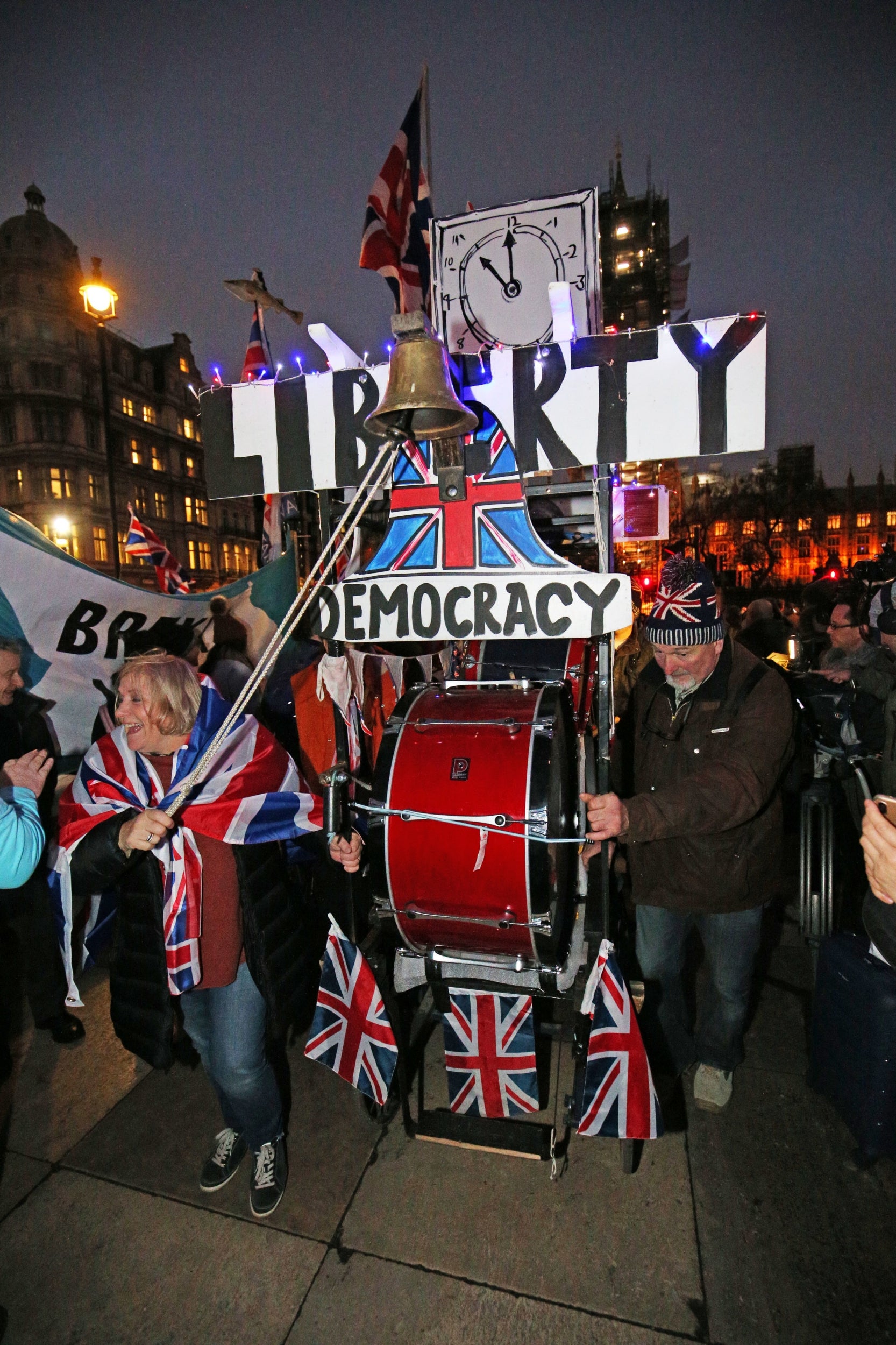
32/37
PA

33/37
PA

34/37
Getty
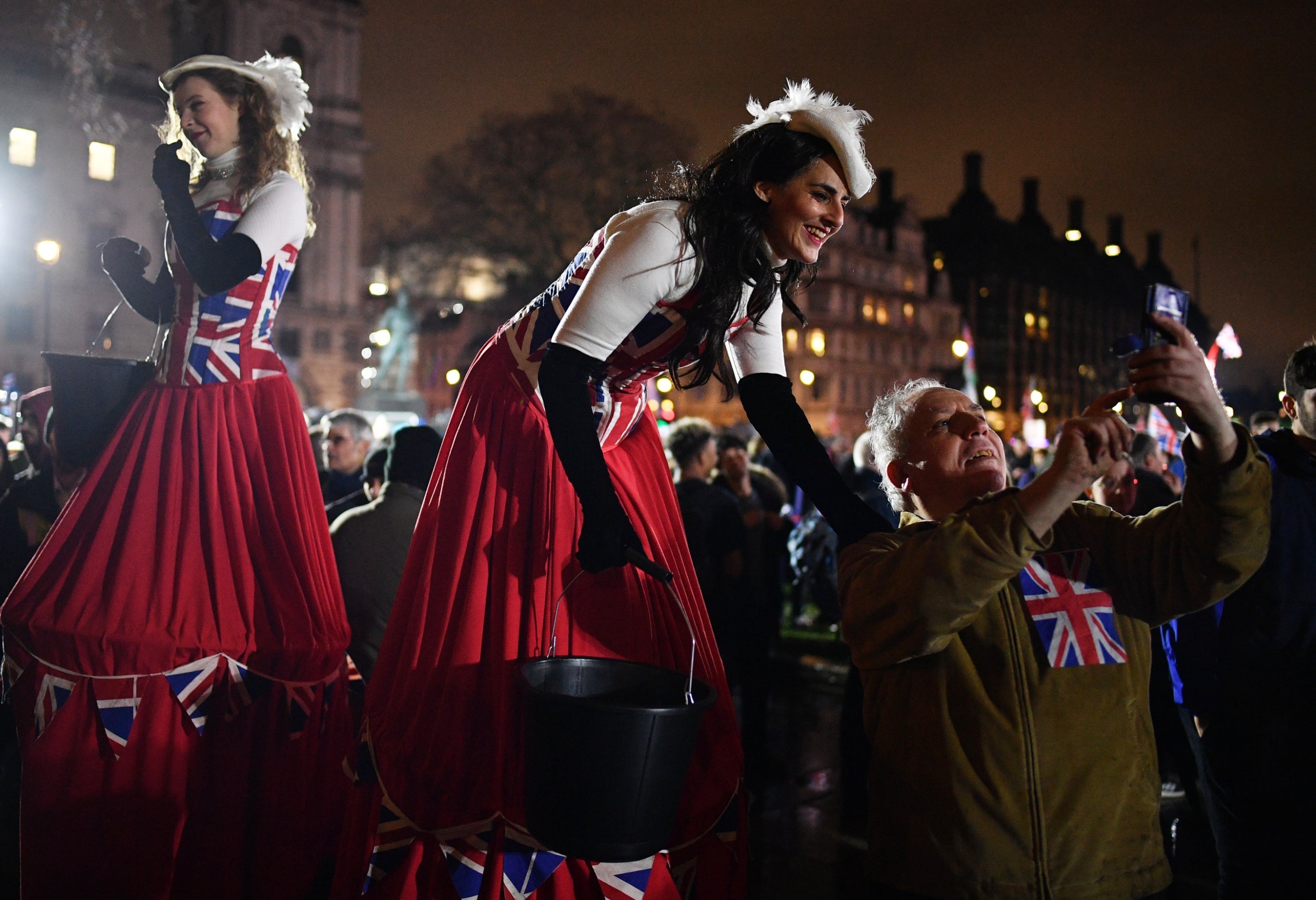
35/37
Getty
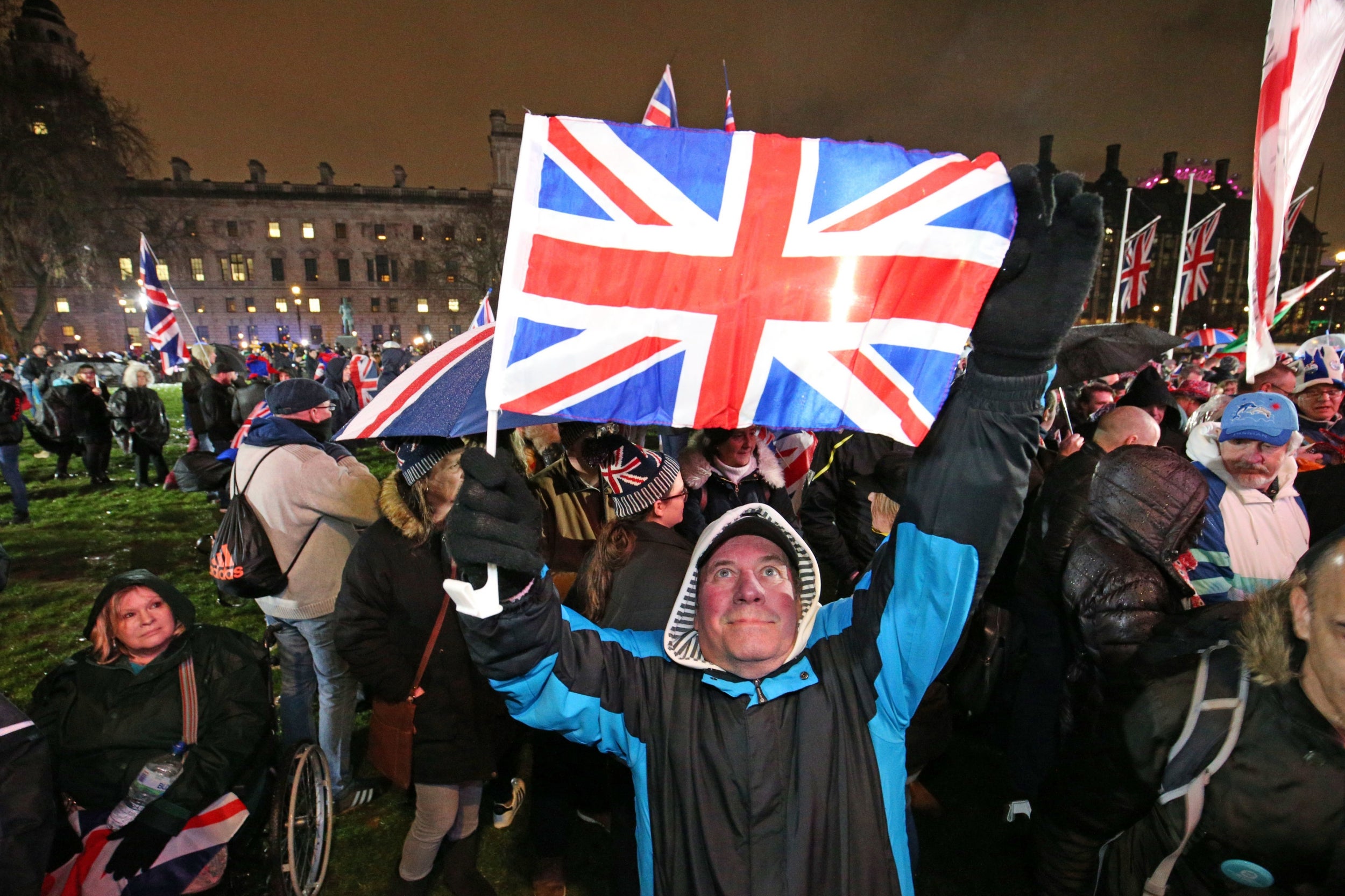
36/37
PA
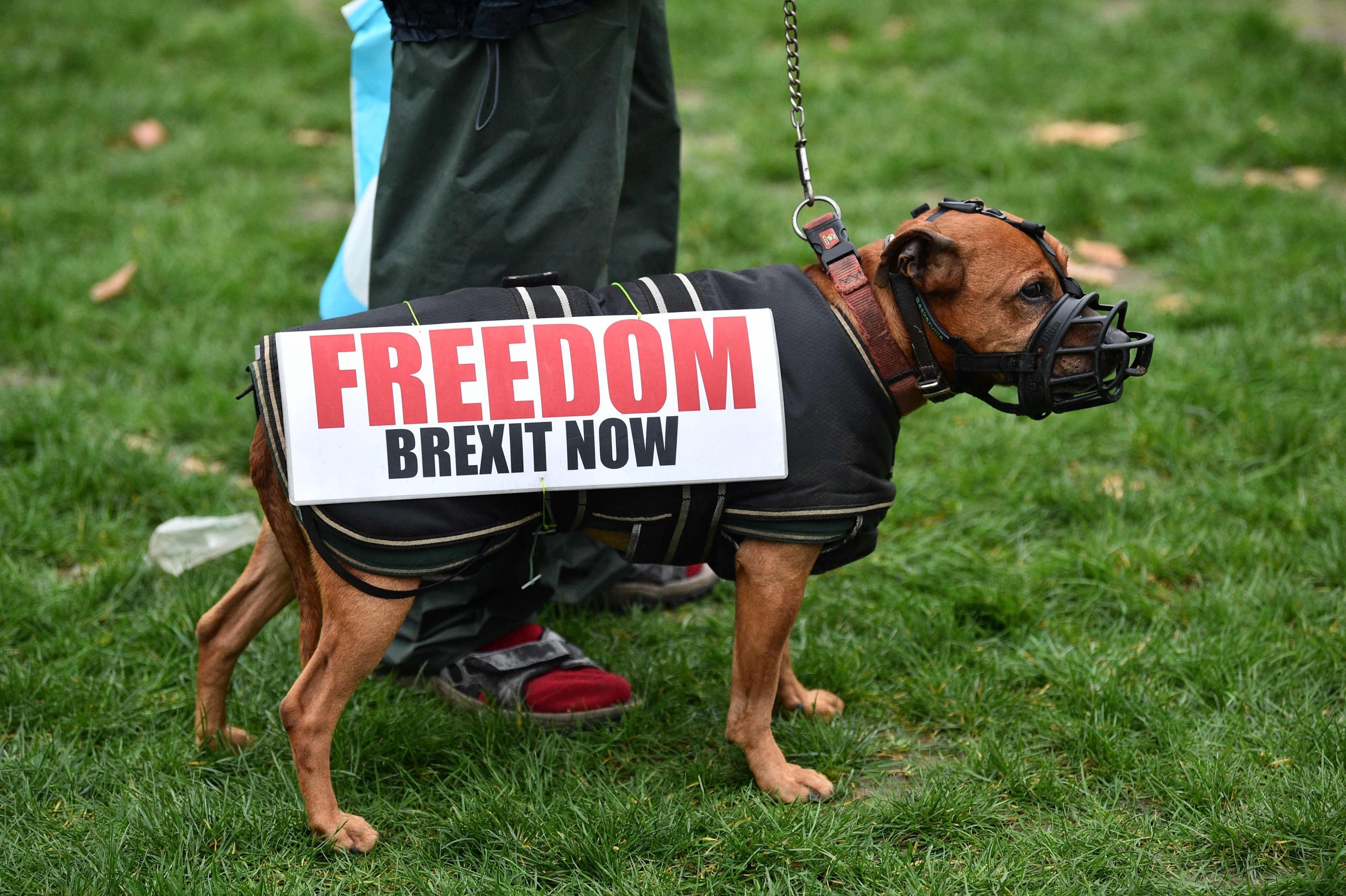
37/37
AFP via Getty

1/37
Pro-Brexit supporters celebrating in Parliament Square, after the UK left the European Union on 31 January. Ending 47 years of membership
PA

2/37
Big Ben, shows the hands at eleven o’clock at night
AFP via Getty

3/37
Pro Brexit supporters attend the Brexit Day Celebration Party hosted by Leave Means Leave
Getty

4/37
Brexit Party leader Nigel Farage smiles on stage
AFP/Getty

5/37
People celebrate in Parliament Square
Reuters

6/37
A Brexit supporter celebrates during a rally in Parliament square
AP

7/37
Police form a line at Parliament Square to prevent a small group of anti-Brexit protestors from going through to the main Brexit rally
PA

8/37
Nigel Farage speaks to pro-Brexit supporters
PA

9/37
PA

10/37
JD Wetherspoon Chairman Tim Martin speaks as people wave flags
Reuters

11/37
Getty

12/37
Brexit supporters wave Union flags as they watch the big screen
AFP via Getty

13/37
Brexit Party leader, Nigel Farage arrives
Reuters

14/37
Brexit supporters gather
AP

15/37
Ann Widdecombe speaks to pro-Brexit supporters
PA

16/37
Brexit supporters wave Union flags as they watch the big screen
AFP via Getty

17/37
AFP via Getty

18/37
People wave British Union Jack flags as they celebrate
Reuters

19/37
Pro-Brexit demonstrators celebrate on Parliament Square on Brexit day
Reuters

20/37
A pro-Brexit supporter jumps on an EU flag
PA

21/37
Getty

22/37
AFP via Getty

23/37
PA

24/37
Getty

25/37
AP

26/37
Getty

27/37
A man waves Union flags from a small car as he drives past Brexit supporters gathering
AFP via Getty

28/37
A pro-Brexit supporter pours beer onto an EU flag
PA

29/37
Getty

30/37
An EU flag lies trampled in the mud
Getty

31/37
Getty

32/37
PA

33/37
PA

34/37
Getty

35/37
Getty

36/37
PA

37/37
AFP via Getty
For instance the so-called “frugal four” – Sweden, Austria, Denmark and the Netherlands – have blocked sweeping fiscal measures suggested as part of the EU’s recovery from coronavirus.
Brexit talks on the future relationship between the UK and EU are currently ongoing, with little progress so far.


